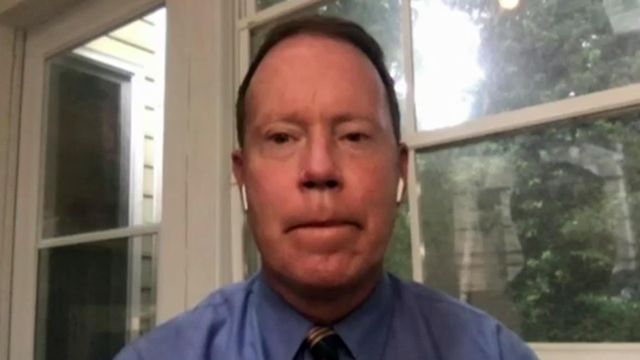Poll: 50 days out from election, NC races tight
With 50 days until Election Day, the presidential race in North Carolina is a toss-up, and the governor's race is tightening up, according to the results of a WRAL News Poll released Monday.
Posted — UpdatedSurveyUSA polled 596 likely voters statewide between last Thursday and Sunday for the exclusive poll and found that President Donald Trump and Democratic challenger Joe Biden each have 47 percent of the vote. The results have a credibility interval of +/-5.6 percentage points.
Trump has a 17-point lead among men in the latest poll, while Biden has a 16-point lead among women. The gender gap is even more pronounced in the suburbs, where Trump leads 61-35 percent (26 points) among men, and Biden leads 60-30 percent (30 points) among women.
"Men and women are looking at this election as through two different looking glasses," SurveyUSA Chief Executive Jay Leve said, noting that Trump won in North Carolina's suburbs four years ago, but the areas now lean Democratic.
A stark divide also can be seen along socioeconomic lines, with Biden holding a 22-1 edge (88 to 4 percent) among Black voters, while Trump leads among white voters 58-35 percent. Biden also leads by more than a three-to-one margin (74-22 percent) among those who classify themselves as poor, while Trump leads by 12 points (56-44 percent) among those who say they are upper middle class or wealthy.
Meredith College political science professor David McLennan agreed that Trump's support in the suburbs has eroded and that his gender gap with women has grown since 2016.
"We're seeing divides not just on gender. We're seeing rural-urban divides in North Carolina and many others," McLennan said. "This is a race we saw happening a year ago. We knew it was going to be tight."
Although both candidates split unaffiliated voters, with 42 percent each, Biden holds a sizable lead, 55 to 34 percent, among key moderate voters.
"Independents are key," Leve said. "The president won independents decisively in North Carolina in 2016, and today he is tied among independents. He needs those independents."
Trump's appeal to his base during this campaign has left independent voters sitting in the middle trying to figure out which way to go, Leve said.
Respondents said the two candidates are equally capable of dealing with the coronavirus pandemic, but they gave Trump the edge in handling the economy (51-42 percent) and public safety (48-45 percent).
Cooper's lead shrinks over Forest
The governor's race also is much tighter now than in late April. Five months ago, Democratic Gov. Roy Cooper held a 57-30 percent lead over Republican Lt. Gov. Dan Forest. The lead is now down to 49-42 percent.
The shrinking lead comes despite Cooper continuing to earn favorable grades for his overall job performance and his handling of the pandemic.
Fifty-six percent of those polled gave the governor a thumbs-up on his performance, compared with 36 percent who disapprove. In April, the results were 65 percent approval, 27 percent disapproval. Concerning the pandemic specifically, 58 percent of respondents approve of Cooper's actions, compared with 32 percent who disapprove.
"The pandemic giveth and the pandemic taketh away," Leve said, noting that Cooper benefiting in the spring after governors were put in charge of handling response to the virus but that people now realize the pandemic is a longer-term issue.
As with the presidential race, men favor the Republican in the gubernatorial race, while women go with the Democrat. Cooper holds a 23-point lead (56-33 percent) among women, while Forest leads by nine points (51-42 percent) among men. The gender gap again grows in the suburbs, with Cooper up 34 points among women and Forest up 24 points among men.
Cooper holds a 50-39 percent edge among voters younger than 50, an 87-1 percent lead among Black voters, a 64-20 percent lead among those who describe themselves as poor and a 56-31 percent lead among moderates. Forest has a 52-40 percent lead among white voters and a slight 51-45 percent lead among those who call themselves wealthy. The candidates are almost evenly split among parents of children in school.
Tillis falls further behind in Senate race
The race for North Carolina's U.S. Senate seat is the only major campaign in the state that isn't getting tighter as the election nears.
Democratic challenger Cal Cunningham holds a 47-40 percent lead over Republican Sen. Thom Tillis, compared with a 41-39 percent lead in April.
Tillis has a negative job approval rating, with 36 percent in favor and 48 percent opposed. That's a reversal from five months ago, when 42 percent approved and only 36 percent disapproved.
"We see Cunningham running a strong counter-offensive to Tillis," Leve said. "Cunningham is benefiting slightly from the divisiveness of the Trump campaign. ... Tillis has striking challenges, and he needs to mount, how shall we say, a likeability offensive because, right now, he is not well liked in North Carolina."
Although Tillis has greater support among Republicans now than in April, his support among independents has faded, Leve said, noting Cunningham leads 58-25 percent among moderates.
Cunningham also leads among age groups and holds similar leads as other Democrats among various demographics: 54-30 percent among women, 79-7 percent among Black voters and 66-14 percent among those who describe themselves as poor. Tillis has a 50-39 percent edge among men, 49-37 percent lead among white voters and 56-41 percent lead among those who call themselves wealthy.
Related Topics
• Credits
Copyright 2024 by Capitol Broadcasting Company. All rights reserved. This material may not be published, broadcast, rewritten or redistributed.






